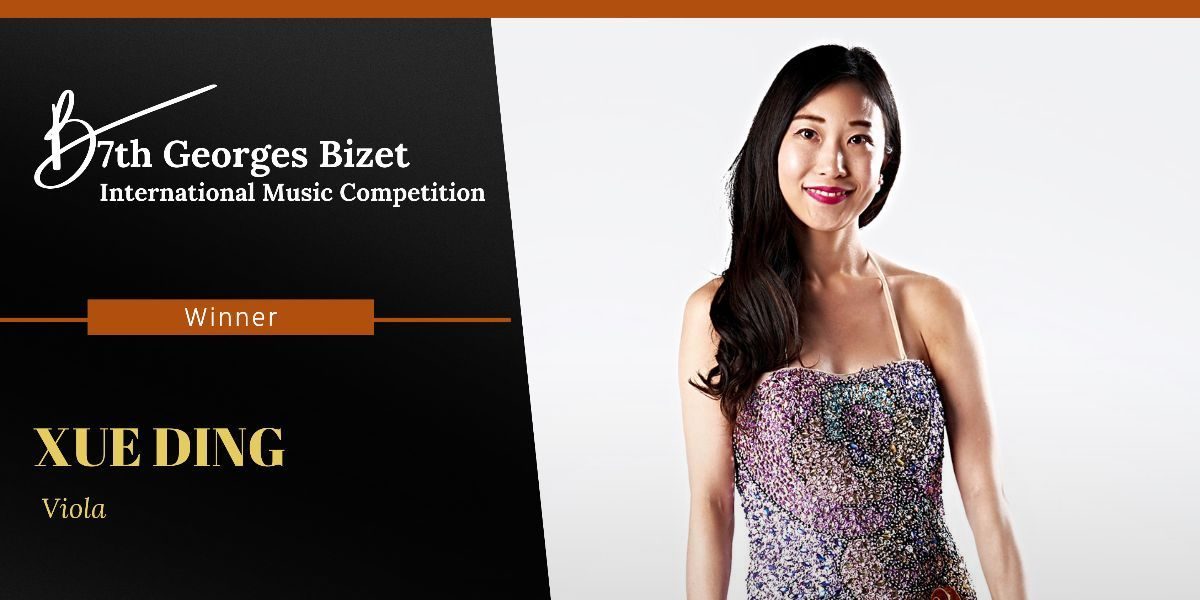Xue Ding’s recent Platinum Award in the Baroque Music category at the Georges Bizet International Music Competition marks a milestone in her evolving artistic journey. This distinguished accolade acknowledges both her technical mastery and innovative approach to historical repertoire—particularly visible in her nuanced performance of Bach’s Cello Suite No. 5. What sets Xue apart is her ability to honor Baroque traditions while making centuries-old music resonate with contemporary audiences, a balance that has become a defining aspect of her artistry.
Early Beginnings and Artistic Evolution
Born into a family that valued cultural enrichment, Xue Ding (who also goes by Annie) exhibited a keen auditory sensitivity from her earliest years. Her kindergarten teacher’s observation about her strong focus on music hinted at her future path when, at six years old, she took her first violin lesson. What began as childhood curiosity developed into an all-consuming passion.
The pivotal transition to viola at fourteen came through what she describes as an “acoustic epiphany.” While attending a chamber music workshop, she became captivated by the viola’s rich, complex timbre—its C string’s depth resonating with her emerging artistic identity. This moment signaled the beginning of her dual mastery, as she maintained her violin proficiency while cultivating what would become her primary voice.
Her early talent led to difficult choices. At thirteen, she left her hometown to enroll in a specialized music middle school—a decision requiring remarkable maturity. “Those early years of separation were challenging,” she reflects, “but the musical community became my second family.” This sacrifice paved the way for international opportunities, including performances at prestigious music festivals like the Sarasota Music Festival and Aspen Music Festival, as well as renowned venues like Lincoln Center and Carnegie Hall in New York.
Award-Winning Artistry and Historical Insight
Xue’s approach to Baroque repertoire skillfully bridges scholarly rigor and emotional authenticity. Her award-recognized interpretation of Bach’s Cello Suite No. 5 demonstrates this balance. Where others might prioritize technical display, she, informed by extensive research and performance experience, uncovers the music’s historical essence while making it accessible to contemporary audiences.
The suite’s distinctive character stems from Bach’s use of scordatura—an inventive tuning technique where the A string is lowered to G. This Baroque practice, employed by composers from Biber in his mystical Rosary Sonatas to Mozart in the Sinfonia Concertante, serves both practical and expressive purposes. This adjustment not only changes the notes on a string and the fingerings but also alters the instrument’s fundamental resonance. In this case, since the string is lowered, the sound becomes mellower.
The fingerings for the whole suite function more effectively with the scordatura tuning—for string players, to maintain a continuous melodic line, many aim to play one melodic line on one string because string crossings can break a phrase. When Xue played this suite with normal modern tuning, she found the required fingerings disrupted the phrases, as she had to change strings mid-phrase. Additionally, the mellower sound complements the character of the suite, particularly in the prelude. Written in French overture style, the prelude benefits from this darker timbre.
Reflections on Competition and Gratitude
Participating in the competition was a transformative experience, challenging her to refine her artistry and reinforcing her dedication to music. She expresses sincere appreciation for the recognition and the opportunity to engage with a global musical community.
She extends deep thanks to her mother for her unwavering support throughout her career, as well as to all her teachers—not only her viola instructors but also those who guided her in music history and theory—for their profound wisdom. This journey has deepened her love for music and her commitment to sharing its power with the world.









